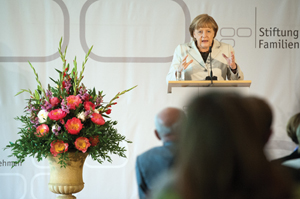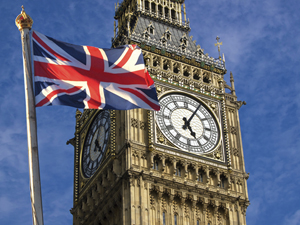Rallying for a cause

Family-run businesses are not known for blowing their own trumpets. A traditionally understated community, they are as unlikely to sing their own praises publicly as they are to complain too much when the going gets tough. Multigenerational family operations, sometimes with centuries of commercial nous, are more prone to ride out the storms than to express too much dissatisfaction about the current state of affairs. But as governments around the world oscillate on which fiscal policies to follow and businesses sink under the weight of unwieldy regulation and inefficient tax codes, family businesses are becoming more vocal, albeit through a special type of mouthpiece: the lobbyist.
Perhaps no other country has perfected government lobbying as well as the US. There the activity is a profession undertaken by a multitude of lawyers organised into service-specific firms on Washington DC’s famous K Street.
 “Lobbying is more accepted in the US as something families will get involved in,” says the patriarch of one business-owning family, speaking on the condition of anonymity. “We regularly give campaign contributions to politicians we believe in and one of our companies operates a public affairs department which lobbies on industry issues important to us.”
“Lobbying is more accepted in the US as something families will get involved in,” says the patriarch of one business-owning family, speaking on the condition of anonymity. “We regularly give campaign contributions to politicians we believe in and one of our companies operates a public affairs department which lobbies on industry issues important to us.”
The family has branches both in the US and the UK. “We certainly do more lobbying activity in Washington than we do in London – it’s simply a difference in culture – but British families are becoming more active in the area.”
Non-profit monitor, the Center for Responsive Politics, calculates that in 2013 the total lobbying spend in America was $3.2 billion (€2.3 billion) among 12,279 registered lobbyists. Finance, insurance and real estate were the biggest industries to lobby federal and state governments last year (spending some $484 million), closely followed by the healthcare industry, which spent around $480 million.
While no breakdown exists for the family business sector, members of this community are some of the most influential names uttered within the Beltway that surrounds the District of Columbia. Of particular note are the Koch brothers. Last year they spent more than $10 million through their dedicated public affairs firm, Koch Industries Public Sector, on issues as wide ranging as climate change, tax, homeland security and agriculture. This was on top of contributing to political campaigns that support their causes and Super PACs (political action groups that cannot donate to candidate campaigns or parties but can make unlimited donations to policy campaigns).
Sticking your neck out
Yet the Koch brothers provide a prime example of the backlash that wealthy families can incur from raising themselves above the lobbying parapet. As well as being fierce lobbyists for the interests of their commercial holdings, the brothers are also well known as personal backers of conservative Republicans and as the money behind many conservative public policy campaigns. In the last week of February, Senate majority leader Harry Reid, a Democrat, derided the brothers as “un-American” in a speech on the Senate floor, accusing them of corrupting the country’s political process and inserting themselves too far into the system.
 Reid’s Democratic Senatorial Campaign Committee began using a controversial slogan – “The GOP [grand old party] is addicted to Koch” – in a series of digital advertisements aimed at Republican candidates in the run-up to the 2014 Congressional elections in November. The Democrat’s new strategy is “attack the Kochs” in response to the millions of dollars that Americans for Prosperity, a Koch-backed Super PAC, is spending on ads supporting Republican candidates.
Reid’s Democratic Senatorial Campaign Committee began using a controversial slogan – “The GOP [grand old party] is addicted to Koch” – in a series of digital advertisements aimed at Republican candidates in the run-up to the 2014 Congressional elections in November. The Democrat’s new strategy is “attack the Kochs” in response to the millions of dollars that Americans for Prosperity, a Koch-backed Super PAC, is spending on ads supporting Republican candidates.
“There’s no downside to any elected official in this country attacking the Koch brothers. None, zero, zip,” former Reid aide and Democratic strategist Jim Manley told social news and entertainment website Buzzfeed in February. “You always need a foil, and it’s taken a while for Democrats to get to this, but [the Kochs] are as good as any a foil given their efforts to buy elections left and right in this country.”
Amid Republican outcry, Reid has been unapologetic. “I’m after the two brothers,” he said from the Senate floor. “They are two people who are obviously trying to buy America and they have the money to do it.”
The Koch family (who, through a Koch Industries spokesperson, declined to comment for this article) is not the only wealthy family active on Capitol Hill, but they are certainly one of the most well known. And for many families, notoriety is to be avoided at all costs – even if the family feels it has something to contribute to the national conversation, it will usually shy away from publicity.
Records from the Center for Responsive Politics (CRP) indicate that other notable American families have sought influence in Washington. CRP records reveal the Waltons have lobbied Washington through their various businesses since at least 1990. In the 2012 election cycle, the family and its businesses made almost $3 million in political campaign contributions to individual candidates and political action groups and spent $6.1 million on specific issue lobbying. This jumped to $7.3 million in 2013. Legislation which has caught the family’s eye includes the Family and Business Tax Cut Certainty Act of 2012, the Fair Minimum Wage Act of 2013, and last year’s most contentious bills — immigration, the budget and the sequester. In 2013, Mars Inc spent $1.8 million with K Street firm Patton Boggs LLP and concerned themselves with tax and agricultural reform issues. A taxing issue
A particular bugbear for many American families of wealth is the country’s archaic tax system, which Democrats, Republicans, wealthy and poor agree is badly in need of reform.
Patricia Soldano founded the Policy and Taxation Group 20 years ago to focus on dismantling America’s cumbersome gift and estate taxes and its prohibitive generation-skipping trust structures. A family office practitioner herself (Soldano was the brains behind Cymric’s transformation into a multi family office and is now chairman of the Western region of GenSpring), she had witnessed first hand the difficulties with these laws. In one case, a client passed away at the age of 38, leaving an emotional and financial toll on the family and just five years later the same family went through similarly tragic events on the early passing of its matriarch.
“It was then that I decided to educate Washington on the economic and emotional strain that the gift and estate tax regime was placing on families,” says Soldano.
Few single-issue lobby groups have lasted as long as Soldano’s Policy and Taxation Group. The lobby group is backed by a significant number of large multigenerational families that have been directly affected by the laws. Currently the gift, estate and generation-skipping tax does not permit families to pass their businesses or their assets on to the next generation without a 40% tax on the market value of all the assets. This usually means that the business or assets are sold, and jobs are eliminated, to create the liquidity to pay the tax that is due nine months after date of death.
This year – with the mid-term elections in November – not a lot of movement is expected on Capitol Hill. Both parties have proposed a comprehensive tax package but neither mentions gift and estate tax.
“Taxes on the rich are a political football,” explains Soldano, who believes the issue may be better served in its own bill. “It’s difficult and unpopular for politicians to champion tax relief for the wealthy, even if they believe it is the right thing to do.”
Indeed, presently behind the scenes in Washington, Soldano says one of the main tools for relieving families of the tax burden – grantor retained annuity trusts (GRATs) – are also coming under attack. Much of the Policy and Taxation Group’s efforts this year will be aimed at educating legislators on the usefulness of GRATs, as well as retaining other planning tools.
While many families will work with their business lobby groups on industry issues, rarely will a family have the time or energy to lobby on behalf of affluent families generally. Hence the need for specialist lobby groups aimed specifically at the interests of affluent families.
“Families are very private and don’t like to draw attention to themselves,” says Soldano. “They usually do not sing their own praises, telling the world that they built businesses and created thousands of jobs which improved the economy or that they conduct philanthropy which helps society. This is why organisations like ours need to stand up and advocate their interests.”
Asserting your rights
But in a country of extremes such as the US, it is perhaps unsurprising that some families might choose an extreme way to advance their interests in a public forum. Enter litigation as an advocacy tool.
 Hobby Lobby is an Oklahoma-based private chain of arts and crafts stores worth approximately $3 billion owned by the conservative Christian family, the Greens. In September 2012 the firm filed a suit in a US District Court contesting the constitutionality of the federal mandate to employers to provide access to certain forms of birth control in their employee healthcare policies, specifically the emergency contraceptive pill and the intrauterine device, because they take effect after fertilisation. The Green family, who did not respond to requests for comment for this story, sees the healthcare mandate as an infringement of their first amendment constitutional rights to religious freedom. In June last year the US District Court rejected the government’s argument that the Green family and their family-owned businesses were not legally exercising religious rights by avoiding the mandate.
Hobby Lobby is an Oklahoma-based private chain of arts and crafts stores worth approximately $3 billion owned by the conservative Christian family, the Greens. In September 2012 the firm filed a suit in a US District Court contesting the constitutionality of the federal mandate to employers to provide access to certain forms of birth control in their employee healthcare policies, specifically the emergency contraceptive pill and the intrauterine device, because they take effect after fertilisation. The Green family, who did not respond to requests for comment for this story, sees the healthcare mandate as an infringement of their first amendment constitutional rights to religious freedom. In June last year the US District Court rejected the government’s argument that the Green family and their family-owned businesses were not legally exercising religious rights by avoiding the mandate.
At the time of going to print, the US Supreme Court was about to hear oral arguments for Sebelius v. Hobby Lobby Stores, Inc to address the constitutionality of the healthcare law and determine whether family business owners must arguably act against their faith based on the company’s form of organisation.
Whatever the merits of the argument and whether or not the Green family wins its case, the family has already successfully used the courts to express their views to government and the public at large.
A finely-tuned political machine
Stefan Heidbreder, managing director of the Munich-based Foundation for Family Businesses, (Stiftung Familienunternehmen) says it is important for family businesses to specifically do their own lobbying: “The interests of family businesses are not sufficiently addressed by traditional sector-based lobby groups. This is especially true for the larger family-controlled companies in Germany.”
 In contrast, Heidbreder explains there are various groups representing small-to-medium enterprises – or Mittelstand – companies. The large listed German corporations have their own ways of making themselves heard.
In contrast, Heidbreder explains there are various groups representing small-to-medium enterprises – or Mittelstand – companies. The large listed German corporations have their own ways of making themselves heard.
“One of the reasons for founding the Foundation for Family Business was to close the ‘lobbying gap’ between SMEs and the DAX blue chips. Some of our efforts are parallel to other German business associations. When it comes to certain taxes, corporate governance and some aspects of regulation and accounting, the bigger and internationally-oriented German family businesses have special issues and sometimes other interests.”
On a European level, Heidbreder says many German family businesses are concerned about the bailouts of eurozone countries and Germany’s subsequent guarantees and payments.
“Also, from our point of view, the governance of the European Union leaves much to be desired. There is too little emphasis on the region’s competitiveness and too much centralisation of political and regulatory powers in Brussels on issues better dealt with on a national level,” says Heidbreder.
In Germany, family businesses worry that the re-regulation of the labour market, as set out by the Social Democrats (the junior partner in the country’s coalition government) will increase costs and bureaucracy for companies. “Another important concern for family businesses nationally is that we may see a much stricter application of inheritance taxes on company assets,” adds Heidbreder.
Enriching debate
These days, the Foundation for Family Businesses does less “classic” lobbying than it used to. Instead, Heidbreder says the group tries to enrich the political and public debate on issues critical to family businesses: “To achieve this, we organise relevant events, commission studies on issues important to family businesses, such as the economic effects of policy measures, and we support university research on family businesses.”
The foundation is also a dialogue partner for decision-makers in political and administrative organisations on questions on law, taxes and economic policy. Recent examples of its efforts include educational campaigns on the structure of business management and supervisory boards, wealth taxes, and special regulations concerning the inheritance tax for family businesses.
German family businesses – especially through the Foundation for Family Businesses – have a reputation for being better organised and successful in lobbying than family businesses in other countries. Heidbreder says the reason for this is simple: family businesses are at the heart of Germany’s economic success. “Because they held onto their personnel during the 2009 downturn, the companies could expand their activities in the economic upturn that followed,” says Heidbreder. “The biggest 500 family businesses alone created more than 300,000 new full-time jobs in Germany between 2006 and 2010, despite the recession.”
While before the turn of the millennium family companies were somewhat neglected in Germany by politicians and academia, Heidbreder says this has changed dramatically: “Politicians understand that family companies are important. We also appreciate that Chancellor Angela Merkel is in regular dialogue with the owners of family businesses [the chancellor recently attended the foundation’s “Day of the Family Enterprise” in Berlin]. We are sure that she and other senior figures in government understand the challenges Germany’s family firms are facing in a globally competitive environment.”
The foundation also has had a number of recent successes outside of Germany, occasionally organising and participating in international events which bring together family businesses and policymakers on a European or international level. It recently worked with the European Commission to create a Europe-wide definition of family business, which will be used for economic research and policy-making in the EU.
“We noticed that many other lobby groups from abroad download and use our studies [for example the “Länderindex” – a benchmark study that measures investment conditions for family businesses in 18 OECD countries]. However, other countries’ lobby groups for family businesses tend to look more after SMEs. Hence, due to our focus on the larger family companies and related economic research, we cooperate little with groups from abroad,” says Heidbreder.
Loosening Britain’s stiff upper lip Across the Channel in the UK, Mark Hastings, director general of the Institute for Family Business (IFB), says the major current issue for British family businesses is to ensure Westminster more broadly appreciates the contributions that family businesses make to the national economy.
Across the Channel in the UK, Mark Hastings, director general of the Institute for Family Business (IFB), says the major current issue for British family businesses is to ensure Westminster more broadly appreciates the contributions that family businesses make to the national economy.
“In the UK, family businesses represent a quarter of gross domestic product and more than nine million jobs, but this goes widely unrecognised by Britain’s political elite,” he says, agreeing with lobby groups in other countries that part of the reason for such a lack of understanding is that the sector has preferred to remain under the radar. “Family-owned and operated is a powerful model which has proved successful for centuries, but it takes a broad coalition of families to demonstrate why the model works as well – if not better – than other business structures.”
Hastings says over the past few years the IFB has managed to develop a good dialogue with people in key government positions. He has seen a growing willingness in politicians to engage with family businesses that have “come out from behind the curtain to articulate their narrative”.
In the meantime, Hastings points out that many other business models have been called into question over the past few years: “Throughout the global financial crisis and beyond, British family businesses in aggregate actually put on jobs. Much of this can be attributed to the success which comes from strong values and a long-term view.”
Hastings says from a lobbying perspective, family businesses in Britain are in a good position: “Presently, there’s no big crisis we need to fight, but improvements could be made in certain areas.” Specifically, Hastings wants a rebalance of the tax situation for debt versus equity investments, and resolution of an uncertainty over incentives for investment in the UK.
In 2014 and beyond, the IFB’s focus will be on leveling the playing field when it comes to family businesses versus other ownership models, as well as improving long-term certainty on how family-owned firms operate in the economy: “We want to ensure there are no unwelcome surprises down the track. So even though there are no particular crises we are dealing with at the moment, it is important to maintain a continual dialogue with legislators so that the interests of family businesses are never too far from their minds.”
Whatever the issue – whether it is estate tax in the US, better recognition of contributions to the economy in Europe, or fairer business incentives in Britain – family businesses are finding their voices increasingly echoing through the halls of power. And legislators are starting to take heed, lest they spurn an influential segment of society and business.






